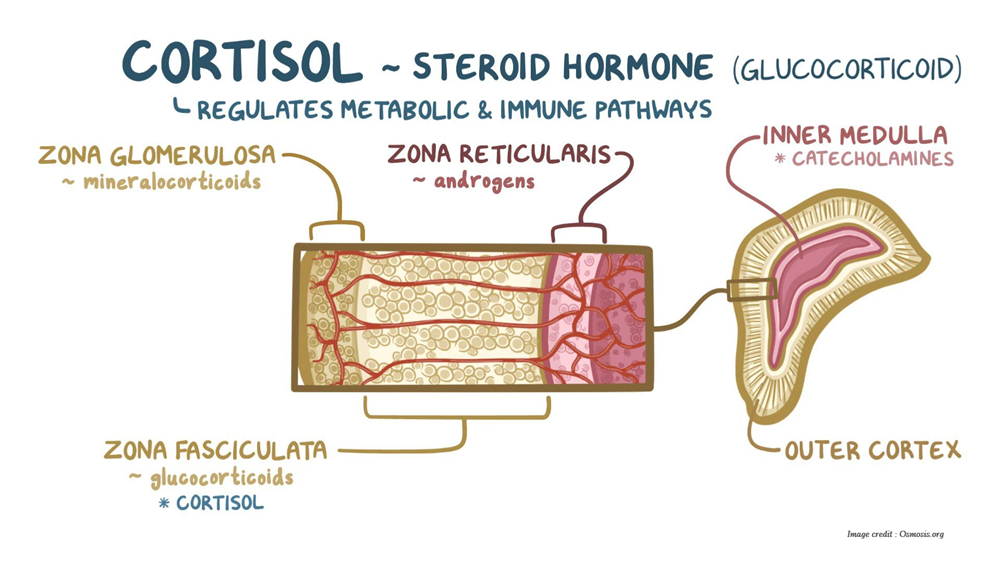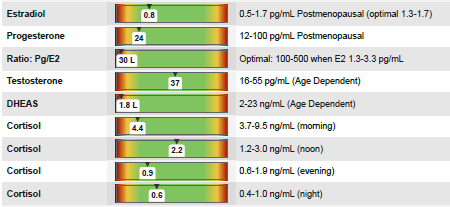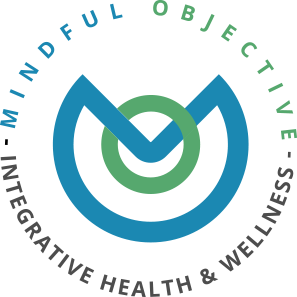
- 0 Comments
- Mindful Objective

Share with others
What does cortisol do to the body?
The Role of Cortisol in the Body
Cortisol is produced by the adrenal glands, which sit atop the kidneys. It is part of the body’s endocrine system and is involved in several vital processes, including:
- Regulating Metabolism: It helps control how the body uses carbohydrates, fats, and proteins. It ensures that the body has enough energy to handle stress.
- Immune Response: It modulates the immune system, reducing inflammation.
- Blood Sugar Levels: It plays a role in maintaining blood glucose levels by stimulating gluconeogenesis (the production of glucose from non-carbohydrate sources).
Daily Fluctuations of Cortisol
Cortisol levels are not static; they follow a diurnal (daily) pattern. Typically, levels peak in the early morning (around 8 AM) to help wake you up and gradually decline throughout the day, reaching their lowest point around midnight. This natural rhythm is crucial for maintaining energy levels and ensuring restful sleep.
Importance of Understanding Cortisol Imbalance
Imbalances in cortisol levels can have significant implications for health. Chronic high levels, often due to prolonged stress, can lead to weight gain, particularly around the abdomen, increased blood pressure, and a higher risk of cardiovascular disease. Conversely, low levels can result in fatigue, muscle weakness, and difficulty managing stress.
Understanding the root cause of these imbalance is essential. For instance, chronic stress, poor sleep, and certain medical conditions can disrupt the natural cortisol rhythm. Identifying and addressing these underlying issues is crucial for restoring balance and improving overall health.
How do i get my cortisol levels tested?
Functional medicine emphasizes a holistic approach to health, seeking to identify and address the root causes of imbalances rather than merely treating symptoms. One effective tool in functional medicine is lab testing to measure cortisol levels throughout the day (see picture above).
Salivary Cortisol Testing: This method involves collecting saliva samples at different times of the day (typically four times: morning, noon, afternoon, and night). It provides a detailed picture of your cortisol rhythm and helps identify any deviations from the norm.
Mindful Objective Health and Wellness partners with labs all over the United States for all types of functional medicine tests. However, this is a test that you can take from the comfort of your home. You’ll receive a testing kit and send it back through the mail to the certified laboratory. Our team of experts can interpret the results and develop a personalized plan to address any imbalances.
The Thyroid, Adrenals, and Cortisol
The thyroid and adrenal glands are integral parts of the endocrine system, and their functions are closely linked. The thyroid gland produces hormones that regulate metabolism, energy levels, and overall growth and development. The adrenal glands produce cortisol, as well as other hormones like adrenaline and aldosterone.
When there are issues with the thyroid or adrenals, it can impact cortisol levels and vice versa. For example:
- Hypothyroidism (low thyroid function) can lead to symptoms such as fatigue, weight gain, and depression. This condition can also affect cortisol levels, as the body struggles to maintain energy balance.
- Adrenal Fatigue: Prolonged stress can exhaust the adrenal glands, leading to low cortisol production. Symptoms include chronic fatigue, sleep disturbances, and difficulty handling stress.
Importance of Holistic Assessment
A holistic integrative health approach recognizes the interconnectedness of different body systems. Assessing thyroid and adrenal function is crucial, especially when dealing with issues like weight loss or lack of energy.
By evaluating the entire endocrine system, we can gain a comprehensive understanding of the underlying causes of symptoms. This approach allows for targeted interventions that address the root cause, rather than simply managing symptoms.
Steps to Balance Cortisol Levels
- Stress Management: Incorporate stress-reducing techniques such as mindfulness, meditation, and yoga into your daily routine. Regular physical activity can also help manage stress levels.
- Balanced Diet: Eating a diet rich in whole foods, including plenty of fruits, vegetables, lean proteins, and healthy fats, can support overall hormonal balance.
- Adequate Sleep: Prioritize good sleep hygiene by maintaining a consistent sleep schedule, creating a relaxing bedtime routine, and ensuring a comfortable sleep environment.
- Regular Exercise: Engage in regular physical activity, but avoid overtraining, which can elevate cortisol levels.
- Functional Medicine Testing: Work with a healthcare provider to assess your cortisol levels and identify any imbalances. Functional medicine testing, available through Mindful Objective, can provide valuable insights.
- Supplements: Based on your lab testing results, specific supplements can be identified to help rebalance cortisol levels. Nutrients like adaptogens, magnesium, B vitamins, and vitamin C can support adrenal health and restore natural cortisol rhythms. One of our health practitioners will provide personalized program tailored to your unique needs for optimal hormonal balance.
Conclusion
Understanding cortisol and its role in the body is essential for maintaining overall health and well-being. By adopting a holistic integrative health perspective, we can identify and address the root causes of cortisol imbalances, leading to improved energy levels, better weight management, and enhanced overall health.
Functional medicine lab testing is a valuable tool in this process, providing a detailed picture of cortisol levels throughout the day. By working with Mindful Objective Health and Wellness, you can access comprehensive testing and expert guidance to achieve optimal health.
Remember, the thyroid and adrenal glands play crucial roles in regulating cortisol levels. Ensuring their proper function is key to maintaining hormonal balance and addressing issues like fatigue and weight gain. By taking a holistic approach, you can achieve lasting health and vitality.
About Mindful Objective
At Mindful Objective, we’re here to help you take charge of your health with a practical, personalized, and integrative approach. Whether you’re navigating chronic symptoms, building healthier habits, or preparing for the unexpected, we offer the support and tools you need to stay informed and empowered.
Our offerings include:
Podcasts, where we break down real health topics in clear, relatable language
1:1 health coaching to guide you through sustainable lifestyle changes tailored to your goals
Access to functional lab testing that helps uncover the root causes of health imbalances
Educational resources and workshops that make wellness simple and actionable
A holistic focus that blends natural health strategies with evidence-based insights
We’re here to help you connect the dots, understand what your body needs, and create a realistic plan for long-term wellness. At Mindful Objective, your health isn’t just a goal—it’s a foundation for everything else.
Want to learn more or get started? Check Us Out!
This is for informational and educational purposes only. We do not diagnose, cure, or treat any illness or disease.
Research
For those interested in exploring the relationship between cortisol levels and overall health, PubMed offers a wealth of research articles. You can find studies detailing how cortisol interacts with other hormones and its impact on health conditions like stress, obesity, and metabolic disorders. A good starting point is this study on the interaction between cortisol and ghrelin: Ghrelin stimulation by hypothalamic-pituitary-adrenal axis activation depends on increasing cortisol levels (PubMed). This resource can help deepen your understanding of cortisol’s role in the body.





